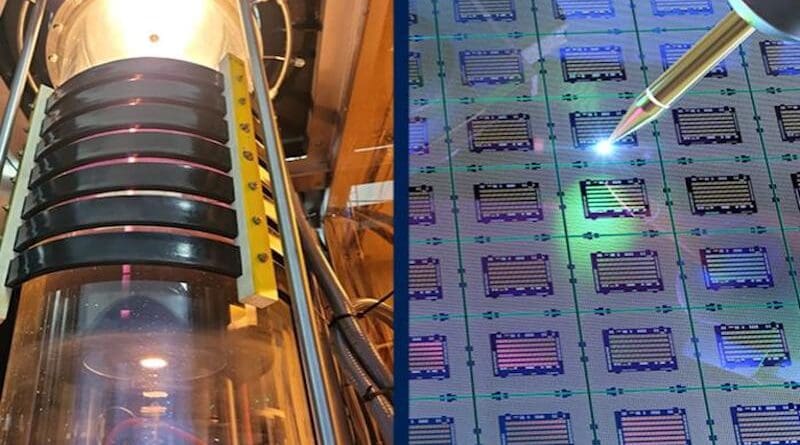Silicon Carbide Innovation Alliance To Drive Industrial-Scale Semiconductor Work
Known for its ability to withstand extreme environments and high voltages, silicon carbide (SiC) is a semiconducting material made up of silicon and carbon atoms arranged into crystals that is increasingly becoming essential to modern technologies like electric vehicles, renewable energy systems, telecommunications infrastructure and microelectronics.
To advance the potential of this semiconductor, Penn State recently launched the Silicon Carbide Innovation Alliance (SCIA), a coalition of industry leaders, academic institutions and government support with a focus on becoming the nation’s central hub for research, development and workforce training in silicon SiC crystal technology.
SiC exhibits superior efficiency and performance compared to silicon and is already a key component in electric vehicles and for developing a more carbon-friendly energy infrastructure.
“SiC is the critical semiconductor for the energy transition because it is at the center of several next-generation ‘green’ technologies,” said Joshua Robinson, professor of materials science and engineering and director of the SCIA. “It is significantly more efficient than silicon for high-power devices, and it enables smaller devices that can handle higher power and deliver charge faster, which is what is needed if we are to establish a high-speed charging network for electric vehicles across the nation.”
The flagship of the alliance will be the recently established onsemi Silicon Carbide Crystal Center (SiC3) at Penn State’s Material Research Institute. The SiC3 is funded via an $8 million partnership with onsemi, an industrial leader in intelligent power and sensing technologies.
Academic research in SiC crystal growth had made significant advancements 20 years ago, producing materials mainly for the Department of Defense and while the application space has dramatically expanded, university education and research in this space has since diminished in the United States, according to Robinson.
“Our goal with the SCIA is to put SiC crystal growth and processing research back on the map in the United States,” Robinson said. “Our vision is to be the central location for research and workforce development in silicon carbide crystal science for the nation.”
Robinson said that the Air Force also provided key support in making the SCIA possible through a Defense University Research Instrumentation Program (DURIP) award.
“The role of the United States Air Force in the establishment of SCIA cannot be overstated,” Robinson said. “The Air Force provided critical funding for the purchase of essential instrumentation that was key to securing our partnership with onsemi and laying the foundation for SCIA. This support also underscores the strategic importance of SiC in national security and defense applications.”
SCIA’s vision aligns closely with the goals of the CHIPS and Science Act, which aims to revitalize America’s semiconductor industry and bolster domestic manufacturing capabilities. The alliance will also be key in efforts around the Mid-Atlantic Semiconductor Hub (MASH), an interdependent coalition of top universities and industries founded by Penn State to combine resources and expertise to meet the needs of the semiconductor industry in the U.S. by strengthening and aligning research, manufacturing and workforce development.
“SCIA’s focus on workforce development and fostering collaboration between industry and academia in Pennsylvania and beyond contributes to the realization of the CHIPS Act’s objectives,” said Clive Randall, distinguished professor of materials science and engineering and director of the Materials Research Institute (MRI) at Penn State. “This will be foundational toward Penn State’s leadership of MASH, which aims to accelerate semiconductor innovation.”
The next step for the alliance is growing membership.
“We see abundant opportunities for collaboration throughout the SiC substrate supply chain, and we’re eager to connect with industry stakeholders to explore potential partnerships in this exciting field,” said David Fecko, industry liaison for MRI. “Our focus will be on addressing industry-relevant challenges alongside SCIA members and on nurturing a skilled workforce through hands-on training in a pilot-scale facility. With this approach in mind, we’re actively seeking new companies to join us in our endeavors.”

